Yup. yup, you should enjoy your free time. And send the email right before the deadline
sounds like this is a common fetish in Russia 🤔
The United States was told last year that Saudi security forces were shooting, shelling and abusing groups of migrants, but it chose not to raise the issue publicly.
Last fall, American diplomats received grim news that border guards in Saudi Arabia, a close U.S. partner in the Middle East, were using lethal force against African migrants who were trying to enter the kingdom from Yemen.
The diplomats got more detail in December, when United Nations officials presented them with information about Saudi security forces shooting, shelling and abusing migrants, leaving many dead and wounded, according to U.S. officials and a person who attended the meetings, all of whom spoke on condition of anonymity since they were not authorized to speak to journalists.
In the months since, American officials have not publicly criticized the Saudis’ conduct, although State Department officials said this past week, following a published report of the killings, that U.S. diplomats have raised the issue with their Saudi counterparts and asked them to investigate. It remains unclear whether those discussion have affected Saudi actions.
The Saudi security forces’ violence along the border came to the fore in a report by Human Rights Watch on Monday that accused them of shooting and firing explosive projectiles at Ethiopian migrants, killing hundreds, and perhaps thousands, of them during the 15-month period that ended in June.
The report was based on interviews with migrants and their associates, photos and videos and satellite photos of the border area. "It cited migrants who said Saudi guards had asked them which limb they preferred before shooting them in the arm or leg and a 17-year-old boy who said guards had forced him and another migrant to rape two girls as the guards looked on.
The report said that if killing migrants were official Saudi policy, it could be a crime against humanity.
The new details about the Saudi border killings come as President Biden seeks to overcome past tensions and cinch a diplomatic breakthrough between Saudi Arabia and Israel.
Late last year, around the time when U.S. diplomats were learning about the border violence, Mr. Biden accused Saudi Arabia of acting against U.S. interests over other issues. Saudi leaders had cut oil production, potentially leading to a rise in global oil prices before the midterm elections. Biden administration officials thought they had reached a secret agreement for the Saudis to increase production. Mr. Biden vowed to impose “consequences” on Saudi Arabia.
Further straining relations, Saudi Arabia had declined to join Western sanctions on Russia after its invasion of Ukraine and worked through China to forge a diplomatic détente with Iran, leaving the United States out.
But in recent months, Mr. Biden and his aides have been talking to Saudi officials about their country establishing diplomatic relations with Israel, which would be a major geopolitical coup. In those discussions, the Saudis have asked the United States for security guarantees, more lethal weapons and help with a nuclear energy program. Mr. Biden might speak with Crown Prince Mohammed bin Salman, the de facto leader of Saudi Arabia, on the sidelines of a leadership summit of the Group of 20 nations next month in New Delhi, India.
Some members of Congress, mostly Democrats, have strongly criticized Saudi Arabia for its human rights record, including its yearslong war in Yemen. Those lawmakers will almost certainly raise further doubts about selling more arms to Saudi Arabia or working with it on a civilian nuclear program, which some U.S. officials fear could be cover for a nuclear weapons program.
Among those briefed on the killing last December by United Nations officials was Steven H. Fagin, the U.S. Ambassador to Yemen, according to a person who was present. Around that time, the United Nations also shared information with others at the State Department and with diplomats from France, Germany, Holland, Sweden and the European Union, this person said.
Inside Yemen, the border killings are anything but secret. Some attacks are reported on Yemeni television, and many of those wounded end up in Yemeni hospitals.
“We face these cases daily coming from the border areas: dead and seriously wounded, women, old people and children,” said Mujahid al-Anisi, the head of the emergency unit at al-Jumhori Hospital, a Yemeni facility near the main crossing zone, told the The New York Times by phone on Wednesday.
The hospital receives an average of four or five cases a day, he said. Many are found by the road unconscious and driven 12 hours to the hospital with wounds in their heads, chests and abdomens that require urgent surgeries. Some need amputations. About one in 10 are women.
“These people arrive so worried and badly wounded,” he said.
Aid workers and United Nations officials have been tracking the violence since early last year, but international efforts to investigate the matter have been few, and public efforts to make it stop even fewer.
That’s because of many factors, aid workers said. Delivering aid in war zones like Yemen requires not angering one’s hosts, including the rebels who control northern Yemen and facilitate human trafficking, or one’s funders, which in some cases includes Saudi Arabia.
Rights violations, no matter how grave, rarely take priority when diplomats do business with their counterparts from rich partners like Saudi Arabia. And most efforts at accountability first call for Saudi Arabia to investigate itself, which it has shown little willingness to do.
Further limiting attention to the killings is their location, in an inaccessible border zone, where journalists, activists and other independent observers can’t witness events.
Fatigue among donors and the public with Yemen’s complicated, eight-year war also plays a role, as does the fact that the mostly Ethiopian migrants crossing Yemen are unlikely to show up in Europe.
“There is no risk for anyone, so they don’t pay attention to the problem,” said Ali Mayas, who has researched migration issues at Mwatana, a Yemeni human rights group.
Human rights groups have long documented threats to migrants from East Africa who cross the Gulf of Aden to Yemen and head north toward Saudi Arabia, where they hope to find work or escape political persecution. They started getting reports of increased violence on the border about two years ago.
The Missing Migrants Project of the International Organization for Migration found that at least 788 migrants had died near the Saudi border in 2022, mostly from artillery or gunfire. The actual number of those killed was likely much higher, the organization said.
Last October, a group of United Nations experts confronted Saudi Arabia with reports similar to what Human Rights Watch would later find. They cited allegations that border guards had shot at migrants, killing as many as 430 in the first four months of 2022, and raped women and girls, sending some back to Yemen naked.
The experts said that, if confirmed, the incidents would indicate “a deliberate policy of large-scale, indiscriminate and excessive use of lethal force” to deter migrants and urged Saudi Arabia to rein in its forces.
The kingdom denied the allegations and said it needed more detail in order to investigate.
Nadia Hardman, the lead researcher on the Human Rights Watch report, said Western governments struggled with how to press Saudi Arabia on human rights.
“What is conceivable in the face of a country that just doesn’t care about its human rights record?” she said.
After its release, a State Department spokesman told reporters that the United States had raised its concerns over the allegations with the Saudi government and called for an investigation.
In a phone interview, Morris Tidball-Binz — the United Nations’ special rapporteur on extrajudicial, summary or arbitrary executions — who is a signatory to the experts’ letter to the Saudi government, said he was not surprised that the issue had received little attention. The events happened in a remote place, he said, “where the authorities are not known for being highly committed to respecting and protecting human rights.”
But he said he hoped increased public scrutiny would make a difference.
“The immediate reaction of denial is a typical one,” he said of the Saudi response. “But I am still hoping that we’ll see some improvements in terms of respect for, if not protection of, these migrants.”
The treaty, originally proposed by Russia and supported by nations such as North Korea, Iran, and China, is suspected to lay the groundwork for legalizing cross-border surveillance and turning online free speech into a criminal act. The draft was subjected to six rounds of negotiations which commenced on Monday at the UN headquarters.
I wouldn't be surprised if this starts with the BRICS countries first.
There is a reason why you should not use your real name or identity when you are going to criticize your government, especially in some countries where former generals run your government.
Microsuck??
Just wait until the python scripts require you to pet anaconda
Obviously, you need to feed the cow first!
Let's open source the student's data 🙄
Is there any reason to be concerned?
Nope
Or should I be excited for faster 5G speeds?
You should
Not enough for the DeLorean to go 88 mph











You'll own nothing, and you'll be happy